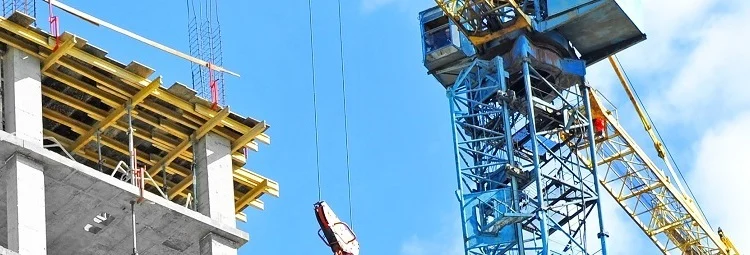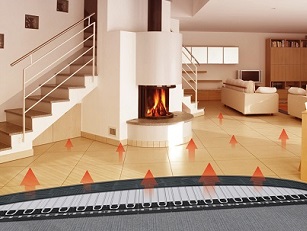It’s cruel that boiler breakdowns are more common in the winter months when we rely on them the most. The extra workload combined with freezing temperatures can lead to a variety of problems, leaving you in the cold until your boiler is repaired or replaced.
Thankfully, there are several quick checks you can make yourself before turning to an engineer. Below we outline some of the key reasons for your boiler not working, suggest how to fix them, and explain when it’s best to call a professional.
Why is my boiler not working?
The power
If your boiler isn’t firing up, there could be an issue with its power source. Take a walk around your home and check whether other appliances and power outlets are working correctly. That includes gas appliances such as your hob, as well as your fuse box.

If there’s no gas and you use a prepayment meter, you could simply need to top up your credit. If electrical appliances are still working meanwhile, your fuse box will tell you if any individual switches have failed or tripped. Power cuts, for example, can switch your boiler off until you manually flick it back on.
The boiler clock
If your boiler isn’t coming on when you expect it to, your boiler clock could be to blame. Perhaps the clocks have gone backwards or forwards recently and put your system out of sync. Power cuts are another key reason for your boiler time not working correctly as they commonly reset device timers to midnight.
Check the time on your boiler is correct and adjust it if not. If the clock appears to be up to date but your boiler still isn’t coming on when it should, it could be that your thermostat isn’t connected with the timer.
The thermostat
Your boiler thermostat not working is another common cause of heating issues. It may simply be that the temperature isn’t set high enough and your thermostat isn’t telling your boiler to switch on as a result.
Try increasing the temperature on your thermostat to 21 degrees or higher to get things going again. Other options are to replace the batteries, move it away from heat sources which may skew your sensors, or to check the manufacturer’s instructions if all else fails.
The pressure
Boilers can lose pressure over time for a number of reasons, most of which are nothing to worry about. But if it drops too far, your boiler could stop working correctly.
Check your boiler’s built-in pressure gauge to see if you’re suffering from low pressure. A reading below one suggests there is a problem and could be due to a system leak, recently bled radiators or a failed component. A reading of around three indicates there’s too much pressure.
Low boiler pressure can be rectified by following your manufacturer’s instructions on repressuring, while high pressure could be relieved by bleeding your radiators. Both fixes should only be carried out if you feel comfortable, however. If you’re in any doubt or discover a gas leak, you should leave the repair to a professional.
The pipes
Frozen pipes are a common problem in colder months. Condensate pipes usually connect your boiler to an outside wall to remove excess liquid, but when frozen in harsh weather, this excess has nowhere to go.
Defrosting this pipe is normally quick and easy, however. Simply pour warm water over the exposed end of the pipe to melt the frozen water and remove the blockage, then reboot your boiler. Insulating the pipe is a smart long-term fix.
Try a reset
Similar to computer technology, if you’ve tried everything above and your boiler’s still not working, a reset could restore everything to working order. Restarting your system can also help if your pilot light has gone out accidentally.
Your system instructions should tell you if and how you can do this – just remember to readjust the boiler clock to the right time if doing so.
When to call an engineer
All the issues above can lead to a serious breakdown if left unaddressed, as can worn out pumps and build-ups of limescale known as ‘kettling’.
There are several situations in which you should call a Gas Safe engineer rather than working on a broken boiler yourself, including:
- If none of the simple fixes above have proved successful and you’re no closer to identifying or fixing the problem
- If the checks or fixes required come with a degree of risk. You mustn’t touch anything to do with the gas, including the flue and pipework. If you think you may have a gas leak or if you can smell gas, you must call your emergency service provider immediately.
While some quick fixes are worth checking yourself, boilers can be extremely dangerous. If you’re in any doubt, use the Gas Safe register to find an approved engineer in your local area.
When might you need a new boiler?
If your problems are due to a particularly serious fault, you could be better off getting a new boiler installed rather than repairing your current one. There are other signs that could suggest it’s time for a replacement too, including:
- If your system breaks down regularly
- If your heating bills are getting more expensive despite no changes to your usage or tariff
- If your boiler is particularly old, or replacement parts are no longer available
Different types of boiler explained?
When it comes to choosing your new boiler, it helps to be aware of the different types available:
- Conventional boilers heat water up and store it in a separate tank where it’s kept warm until you need it. They’re suited to large homes with lots of bathrooms and radiators and enough storage space for the tank itself
- Combi boilers provide hot water from the mains on demand without the need for a storage tank. These systems save on storage space and make installation and servicing simpler
- System boilers supply hot water to a storage cylinder and radiators in your home. Like a combi boiler, the main components are contained within one unit, but system boilers can provide more hot water due to the storage cylinder
You can then choose from gas, oil, electricity and green energy sources to use as fuel, depending on what’s available for your property.
The right boiler for you will depend on factors such as the size of your home, the number of people that live in it, your existing system and the amount of free space you have. For expert advice on what type of boiler you need, speak to the friendly team at your local City Plumbing branch.
Upgrade your boiler with City Plumbing
If your boiler is on the blink and it makes sense to replace it, we’re on hand to help. We stock a wide variety of domestic boilers including gas, oil and electric, plus flues and accessories.
Shop online today and take advantage of free delivery on orders over £50, or find one of our stores near you. Whichever way you prefer, we can help you get cosy again in no time.
Other articles

Radiator Buying Guide: which radiator should you choose?
22 Mar 2022 ・ 7 mins

The difference between electric & water underfloor heating
22 Mar 2022 ・ 6 mins

What is a boiling water tap?
22 Mar 2022 ・ 4 mins



